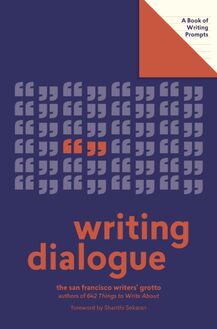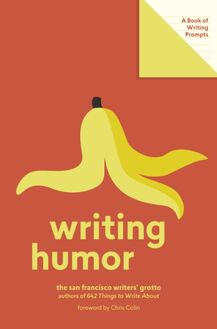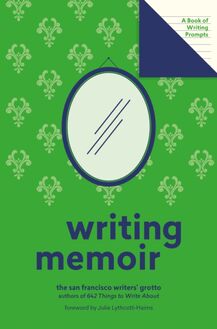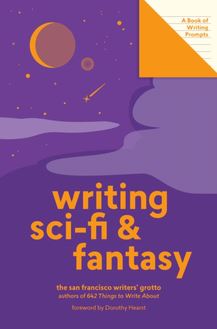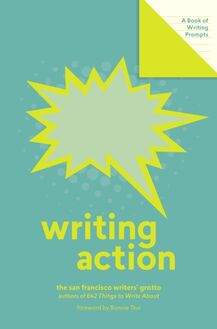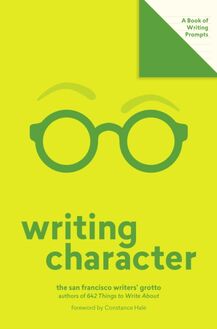-
 Univers
Univers
-
 Ebooks
Ebooks
-
 Livres audio
Livres audio
-
 Presse
Presse
-
 Podcasts
Podcasts
-
 BD
BD
-
 Documents
Documents
-
- Cours
- Révisions
- Ressources pédagogiques
- Sciences de l’éducation
- Manuels scolaires
- Langues
- Travaux de classe
- Annales de BEP
- Etudes supérieures
- Maternelle et primaire
- Fiches de lecture
- Orientation scolaire
- Méthodologie
- Corrigés de devoir
- Annales d’examens et concours
- Annales du bac
- Annales du brevet
- Rapports de stage
La lecture à portée de main
Vous pourrez modifier la taille du texte de cet ouvrage
Découvre YouScribe en t'inscrivant gratuitement
Je m'inscrisWriting Memoir (Lit Starts) , livre ebook
Découvre YouScribe en t'inscrivant gratuitement
Je m'inscrisEn savoir plus
Vous pourrez modifier la taille du texte de cet ouvrage
En savoir plus

Description
Informations
| Publié par | ABRAMS BOOKS |
| Date de parution | 05 juillet 2022 |
| Nombre de lectures | 0 |
| EAN13 | 9781647009731 |
| Langue | English |
Informations légales : prix de location à la page 0,0584€. Cette information est donnée uniquement à titre indicatif conformément à la législation en vigueur.
Extrait
writing memoir
Memoirists take on the risks associated with telling truths in public, and thus are the bug lighters of the literary world. Critics love to pick on us-they equate the genre to a gathering of nudists whose bodies no one wants to see. Family and friends can be critics, too-they may not like the secrets being revealed or the way they ve been depicted on the page. (A worthy retort, satisfying in the moment: If you didn t want to be in the book, you should ve been nicer. ) But whether memoirists are lauded as heroes or reviled as knaves is beside the point. The truth is worth telling. And sometimes the truth hurts.
But let s rewind. First, let s establish a definition for what memoir is. To me, memoir is a true account of some aspect of one s life . It is not autobiography, which is generally reserved for humans who know during their lifetimes that they are destined to become historical figures. Both forms aim to tell the truth of things as remembered by the subject, and both are vulnerable to accusations that the narrative veered toward make-believe or covered a subject not worthy of another human s time. But they differ in their scope. A memoir covers a particular experience, memorable period, or lesson learned; an autobiography tells a person s entire life. A person can write only one autobiography but can write innumerable memoirs. (A recent headline accompanying the publication of her third memoir screamed, Joyce Maynard is still oversharing. )
It s also worthwhile to compare memoir to its sister, the novel. Whereas in a novel the reader is aware of three distinct points of view-the author who writes the book, the perspective from which the story is told, and the main character or protagonist who lives the story-in memoir, the author, narrator, and protagonist are one and the same. This requires a bit of psychological sorting, and embedded in the complexity is a critical lesson: A memoirist s central preoccupation is determining what the self knew (and when) and how the narrator should reveal the protagonist s journey to the reader, while doing a delicate dance with the changing nature of memory.
Unlike novelists, memoirists choose not to invent a world where anything goes and where the author will have complete deniability. Our oath is to the truth. Yet truth is not as ironclad a concept as it may seem. Think of it as fact versus perception; this seems like a clear distinction, yet is my perception not the pencil that records the facts of my life?
Following Thanksgiving dinner, for example, were you to ask all of your relatives to spend half an hour writing down what happened during the meal, you would get as many versions of that truth as there are relatives. Each of us sees things differently, through the lens of our experiences, biases, fears, and needs. The Thanksgiving scene-who arrived when, who sat where, the food, the conversation, and what caused that clatter in the kitchen-is now part of the past. The only means we have for resurrecting it are the memories of the humans who were there. Memory, therefore, is a representation (a re -presentation). Even if the whole thing had been recorded and watched on instant replay in the family room, we might know the what of what happened, but we still wouldn t know the why and the how. Why Uncle Rufus showed up late and how Mom felt when she heard him come through the door. Why Dad had a smirk on his face. Why cousin Iona grew silent. How Emmett felt as he sat there. How , when all was said and done, there was a pile of potatoes on the kitchen floor. Is anyone s conclusion on these matters more right or wrong than anyone else s? Not really.
Things are never exactly as they seem, in other words. The surrealist painter Ren Magritte sought to teach this by writing Ceci n est pas une pipe (This is not a pipe) under his famous painting of a pipe, by which he meant: This painting is not the same thing as the object that was painted. Think of memoir the same way: always one step removed from the experience it purports to depict. Moreover, we are biased either toward or against ourselves and others; we can t know what we do not know and often don t know why we did something, let alone what motivated someone else s behavior. And what we do know is, by definition, only what our memory has chosen to retain for us. Memoirists aim for accuracy, honesty, and fairness, knowing certainty is impossible to come by.
Since memoir covers a piece of a life rather than an entire life, a crucial consideration is whether the memories are ripe for the telling or should be allowed to age with time. Some memoirs are written during the thing itself, or right after. Some are written with the benefit of distance from the central events, which allows the memoirist to bring deeper wisdom and analysis to the story even at the expense of depleting memory.
For example, Frederick Douglass had a cle
-
 Univers
Univers
-
 Ebooks
Ebooks
-
 Livres audio
Livres audio
-
 Presse
Presse
-
 Podcasts
Podcasts
-
 BD
BD
-
 Documents
Documents
-
Jeunesse
-
Littérature
-
Ressources professionnelles
-
Santé et bien-être
-
Savoirs
-
Education
-
Loisirs et hobbies
-
Art, musique et cinéma
-
Actualité et débat de société
-
Jeunesse
-
Littérature
-
Ressources professionnelles
-
Santé et bien-être
-
Savoirs
-
Education
-
Loisirs et hobbies
-
Art, musique et cinéma
-
Actualité et débat de société
-
Actualités
-
Lifestyle
-
Presse jeunesse
-
Presse professionnelle
-
Pratique
-
Presse sportive
-
Presse internationale
-
Culture & Médias
-
Action et Aventures
-
Science-fiction et Fantasy
-
Société
-
Jeunesse
-
Littérature
-
Ressources professionnelles
-
Santé et bien-être
-
Savoirs
-
Education
-
Loisirs et hobbies
-
Art, musique et cinéma
-
Actualité et débat de société
- Cours
- Révisions
- Ressources pédagogiques
- Sciences de l’éducation
- Manuels scolaires
- Langues
- Travaux de classe
- Annales de BEP
- Etudes supérieures
- Maternelle et primaire
- Fiches de lecture
- Orientation scolaire
- Méthodologie
- Corrigés de devoir
- Annales d’examens et concours
- Annales du bac
- Annales du brevet
- Rapports de stage
